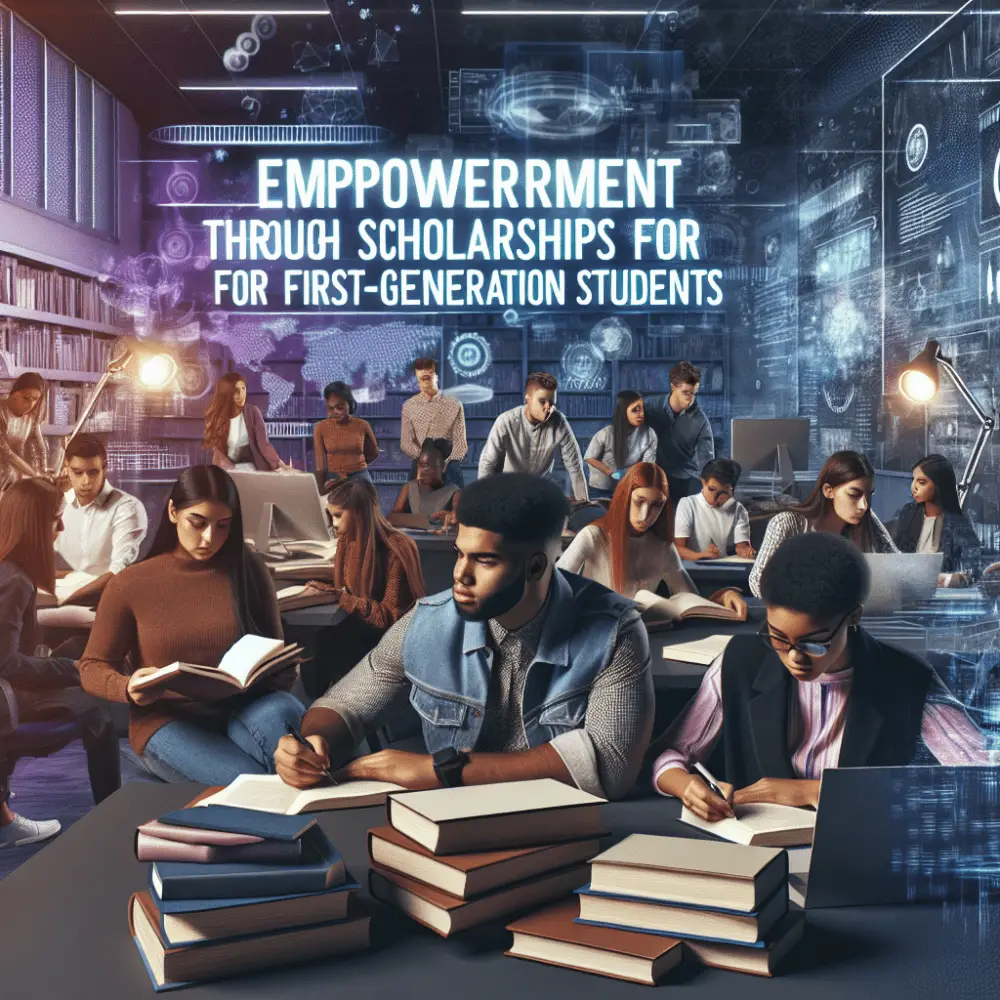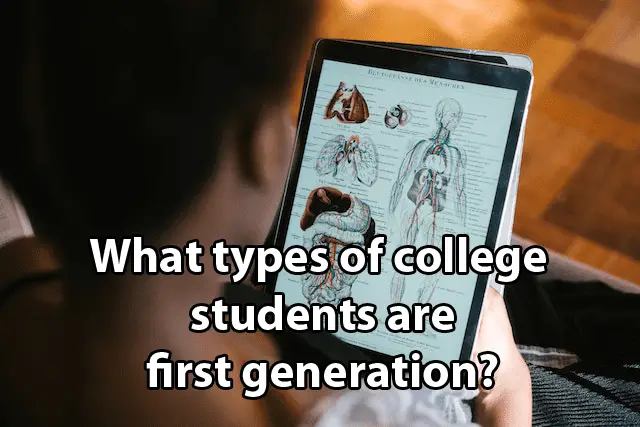
Empowering Future Leaders Through Scholarship Programs for First-Generation Students
Education is a powerful tool that has the potential to transform lives and society. For first-generation students, who are the first in their families to attend college, the stakes are even higher. They often face numerous challenges, including financial constraints, lack of guidance, and limited access to educational resources. Therefore, scholarship programs specifically designed for first-generation students play an essential role in empowering these future leaders. It is through these initiatives that we can build a more equitable and inclusive society.
Scholarships: A Beacon of Hope
Scholarship programs offer hope and practical support to first-generation students. By providing financial aid, mentorship, and academic resources, these programs help bridge the gap between ambition and achievement. Scholarships do more than just alleviate the financial burden – they offer validation and support that can boost the confidence of first-generation students. For example, the Law and Justice Scholars Program in Brazil, 2024 is one such initiative that aims to support first-generation students aiming for careers in law and justice.
The Law and Justice Scholars Program in Brazil, 2024, not only covers tuition but also offers mentorship and networking opportunities. This helps students to gain practical insights and build relationships that can be crucial for their future careers. Programs like these underscore the importance of specialized scholarships designed to meet the unique needs of first-generation students.
Breaking Barriers
For many first-generation students, the path to higher education is fraught with obstacles. Financial struggles are often the most pressing issue. Rising tuition fees, cost of living, and other associated educational expenses can make higher education seem unattainable. Scholarship programs, therefore, play a crucial role in reducing these financial barriers.
In addition to financial constraints, first-generation students often lack mentors or role models who can guide them through the complexities of higher education. Scholarship programs frequently include mentorship as part of the package, offering guidance both academically and personally. Mentors can offer valuable advice on time management, study techniques, and career planning, thus helping students navigate their college life more effectively.
Case Study: Alzheimer’s Research UK PhD Scholarship 2018/2019
A prominent example of how scholarships can make a significant impact is the Alzheimer’s Research UK PhD Scholarship 2018/2019. Although this scholarship focuses on research, it is a reminder of how specialized programs can foster talent in specific fields. First-generation students interested in healthcare or research may benefit significantly from such specialized scholarships.
The Alzheimer’s Research UK PhD Scholarship 2018/2019 provided not only financial support but also access to top-tier research facilities and experienced mentors. This enabled students to focus entirely on their research, leading to groundbreaking discoveries in Alzheimer’s treatment. For first-generation students passionate about making a difference in healthcare or any specialized field, such scholarships provide a focused pathway to success.
Building a Supportive Community
Scholarship programs often aim to foster a sense of community among recipients. Community support is crucial for first-generation students who may feel isolated due to their unique challenges. By creating a network of scholars, these programs offer a platform for students to share experiences, offer mutual support, and collaborate on projects.
Community-building can be a game-changer for first-generation students. It provides an emotional safety net and builds resilience. Students who feel connected and supported are more likely to complete their education and pursue successful careers.
Mentorship as a Key Component
Mentorship plays a pivotal role in the success of scholarship programs for first-generation students. Mentors provide insights and share experiences that textbooks and classrooms often cannot offer. A mentor’s guidance can make the difference between success and failure, especially for students who are navigating higher education for the first time in their families.
Programs like the Law and Justice Scholars Program in Brazil, 2024, embed mentorship into their structure, recognizing its importance. Mentors assist students in understanding their field, planning their career paths, and even coping with personal challenges. This one-on-one support can significantly impact a student’s ability to excel academically and professionally.
Empowerment through Opportunities
Scholarship programs empower first-generation students by providing opportunities that they may not have had otherwise. These opportunities range from internships and research projects to networking events and international exchanges. Exposure to such diverse experiences broadens students’ horizons and equips them with the skills needed to become future leaders.
For instance, the Alzheimer’s Research UK PhD Scholarship 2018/2019 opened doors for students to work on cutting-edge research projects. This kind of exposure allows students to apply their theoretical knowledge in practical settings, enhancing their learning experience and making them more competitive in the job market.
Promoting Diversity and Inclusion
Scholarship programs for first-generation students are not just about individual empowerment; they also contribute to greater societal goals. Increasing the representation of first-generation students in higher education enriches the academic environment with diverse perspectives. This diversity fosters innovation and creates a more inclusive academic culture.
Moreover, as first-generation students graduate and enter the workforce, they bring unique experiences and viewpoints. This diversity can lead to more inclusive workplaces and a broader societal understanding of various issues. For example, graduates from the Law and Justice Scholars Program in Brazil, 2024, who come from diverse backgrounds, are likely to bring unique insights into the legal system, promoting justice and equality.
The Ripple Effect
The benefits of empowering first-generation students extend beyond the individual. Educated individuals contribute more effectively to their communities and society at large. They are likely to become role models and mentors for future generations, creating a positive ripple effect.
First-generation graduates often take on leadership roles in their communities, helping to drive economic growth, social change, and innovation. Their success stories inspire other students to pursue higher education, perpetuating a cycle of empowerment and progress.
Conclusion
Empowering future leaders through scholarship programs for first-generation students is not just an educational imperative but a societal necessity. These programs provide financial aid, mentorship, and community support, helping students overcome barriers and achieve their full potential. Initiatives like the Law and Justice Scholars Program in Brazil, 2024, and the Alzheimer’s Research UK PhD Scholarship 2018/2019 illustrate the transformative impact of specialized scholarships.
By investing in first-generation students, we invest in a brighter, more equitable future. These students are poised to become the leaders, innovators, and change-makers of tomorrow. Through scholarship programs, we can ensure that they have the resources, support, and opportunities they need to succeed. In doing so, we create a more inclusive and prosperous society for all.

















